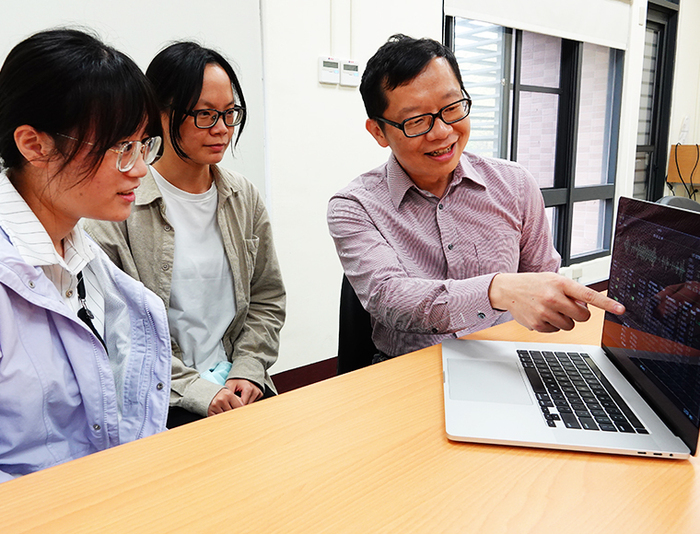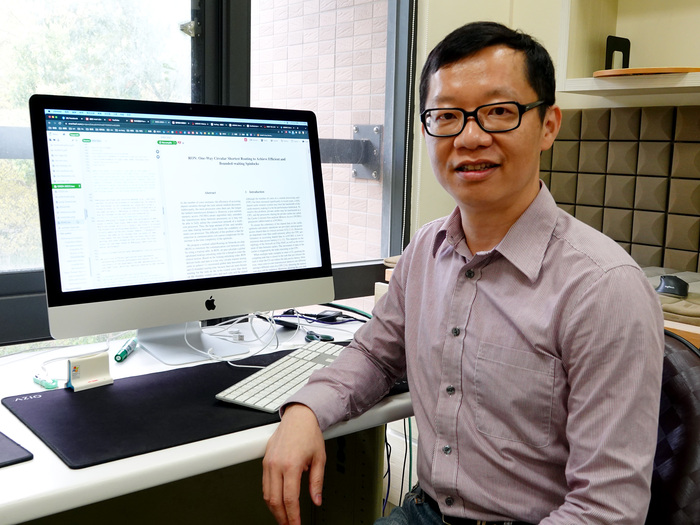Efficiently Enhancing Computer Performance by Over 12%: Faculty from the Department of Computer Science and Information Engineering at National Chung Cheng University Develops Technology to Improve Multi-Core CPU Routing


Digital technology is rapidly advancing, and our daily life has become inseparable from 3C products. Due to the growing emphasis on high fluency and high definition, there is a greater focus on the performance of Central Processing Unit (CPU). Associate Professor Shi-Wu Lo of the Department of Computer Science and Information Engineering at National Chung Cheng University (CCU) is working on software technology to improve the connection network of a multi-core processor, using code to limit the transmission path of processor cores. This not only increases computer performance by 12 to 25%, but also holds the potential to be applied in areas such as gaming and cloud servers. Recently, this technology was presented at the USENIX Symposium on “Operating Systems Design and Implementation (OSDI)” international conference, which is highly regarded in the systematic field. It is one of only three academic research papers from Taiwan to be featured at this conference.
Every computer must have a CPU, much like the human brain, making the CPU a crucial component of a computer. In the early days, CPUs were primarily single-core, but with technological advancements, multi-core processors capable of accommodating two or more cores have gradually emerged. “These cores work collaboratively, much like a large organization. The key lies in effective and rapid communication,” says Associate Professor Lo of the Department of Computer Science and Information Engineering at CCU. He explains that one should think of multi-core processors as an organization with many employees who can access shared documents, but not simultaneously. When the number of cores is small, without proper management methods, some cores might waste time waiting, or transmissions might not be optimized based on distance, leading to lower overall efficiency and dragging down computer performance.
Each core operates at a lightly different speed, leading to specific cores frequently accessing data ahead of others. The software technology we’ve developed ensures that messages begin from neighboring cores and are transmitted sequentially to guarantee fairness,” says Professor Lo. The team has written code to modify the function library of software development, proposing a method called Routing on Network-on-chip (RON) to minimize the communication cost between cores by using a routing table and pre-calculating an optimized locking-unlocking order.
Through experimental testing, the technology developed by the CCU team has demonstrated the capability to enhance overall computer performance by approximately 12 to 25%. This technology can be applied not only to games that require high-definition and smooth performance but also in the field of cloud servers. Currently, the CCU team has applied for a technology patent and is seeking opportunities for industry-academia collaboration. Professor Lo also mentioned that the code for the technology is concise. As long as the function library written by the team is compiled into the system, there are no difficulties in terms of portability.
The CCU Computer Science and Information Engineering team spent four years conducting experiments and running simulator data. They mad multiple attempts to submit their research findings to the OSDI conference under the internationally renowned open-source software association “USENIX: The Advanced Computing Systems Association.” Despite facing rejection up to six times, Shi-Wu Lo chuckled and mentioned that for him, presenting at this conference was a research goal. Through persistent revisions and testing, their efforts were finally acknowledged by OSDI, and their work was accepted recently.
According to CCU, the USENIX association is a longstanding organization with a significant history. Some operating system standards have even been established by this association. The OSDI conference, hosted by USENIX, is considered one of their premier events and is often referred to as the “Oscars of the Systems World.” Over the past 30 years, Taiwan has only had two papers published at OSDI. Therefore, the recognition achieved by the CCU Computer Science and Information Engineering team for their accomplishments is indeed a remarkable feat.

